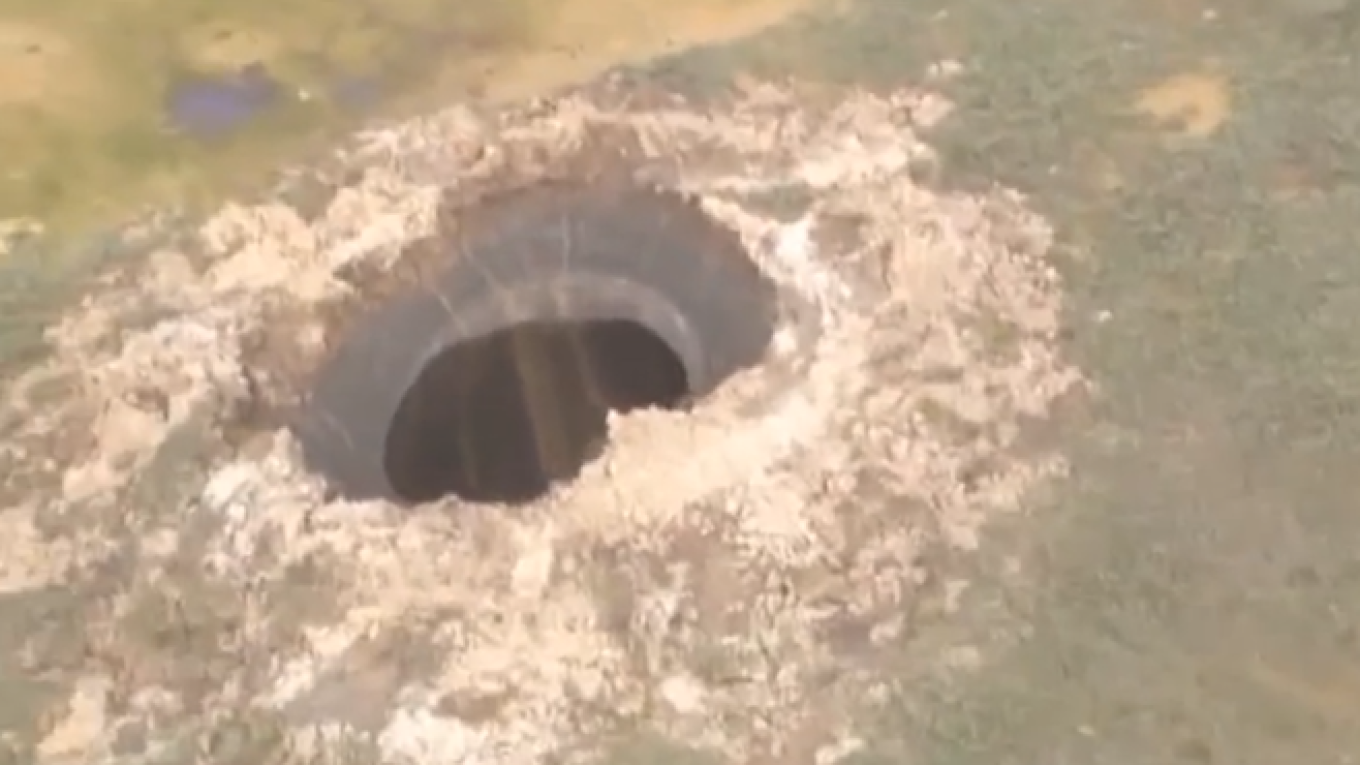A mysterious giant crater that appeared in Russia's extreme north over summer was likely caused by the same phenomenon behind the Bermuda Triangle in the North Atlantic Ocean, scientists say.
Experts were initially left puzzled when the 100-meter-wide hole appeared in the Yamal-Nenets autonomous district in mid-July, before a second hole was discovered several days later about 30 kilometers away.
But now, scientists believe they can cast away theories of meteorites or alien spaceships, pinning the appearance of the crater on an explosion of gas hydrates beneath the surface.
Writing in the Science in Siberia journal, experts from the region's Trofimuk Institute of Petroleum-Gas Geology and Geophysics said a combination of factors had led to a large-scale release of gas hydrates, otherwise known as clathrate hydrates.
Scientists say a combination of warm temperatures above the ground and the crater's location on the crossing of two fault lines meant the territory was being heated simultaneously from both below and above.
This lead to a discharge of gas hydrates deep beneath the surface of the Yamal Peninsula, resulting in the underground explosion that formed the crater, the scientists said.
The giant hole is not the only mysterious occurrence to have been explained away by gas hydrates.
Some scientists also believe gas hydrates are responsible for the disappearance of several ships and planes in the Bermuda Triangle, also known as the Devil's Triangle, in the North Atlantic Ocean, pointing to turbulence and flare-ups created by the release of hydrates from the sea bed.
Gas hydrates are ice-like forms of water that contain gas molecules, primarily methane. They are found beneath certain parts of the ocean, as well as in permafrost sections of the Arctic.
A Message from The Moscow Times:
Dear readers,
We are facing unprecedented challenges. Russia's Prosecutor General's Office has designated The Moscow Times as an "undesirable" organization, criminalizing our work and putting our staff at risk of prosecution. This follows our earlier unjust labeling as a "foreign agent."
These actions are direct attempts to silence independent journalism in Russia. The authorities claim our work "discredits the decisions of the Russian leadership." We see things differently: we strive to provide accurate, unbiased reporting on Russia.
We, the journalists of The Moscow Times, refuse to be silenced. But to continue our work, we need your help.
Your support, no matter how small, makes a world of difference. If you can, please support us monthly starting from just $2. It's quick to set up, and every contribution makes a significant impact.
By supporting The Moscow Times, you're defending open, independent journalism in the face of repression. Thank you for standing with us.
Remind me later.


